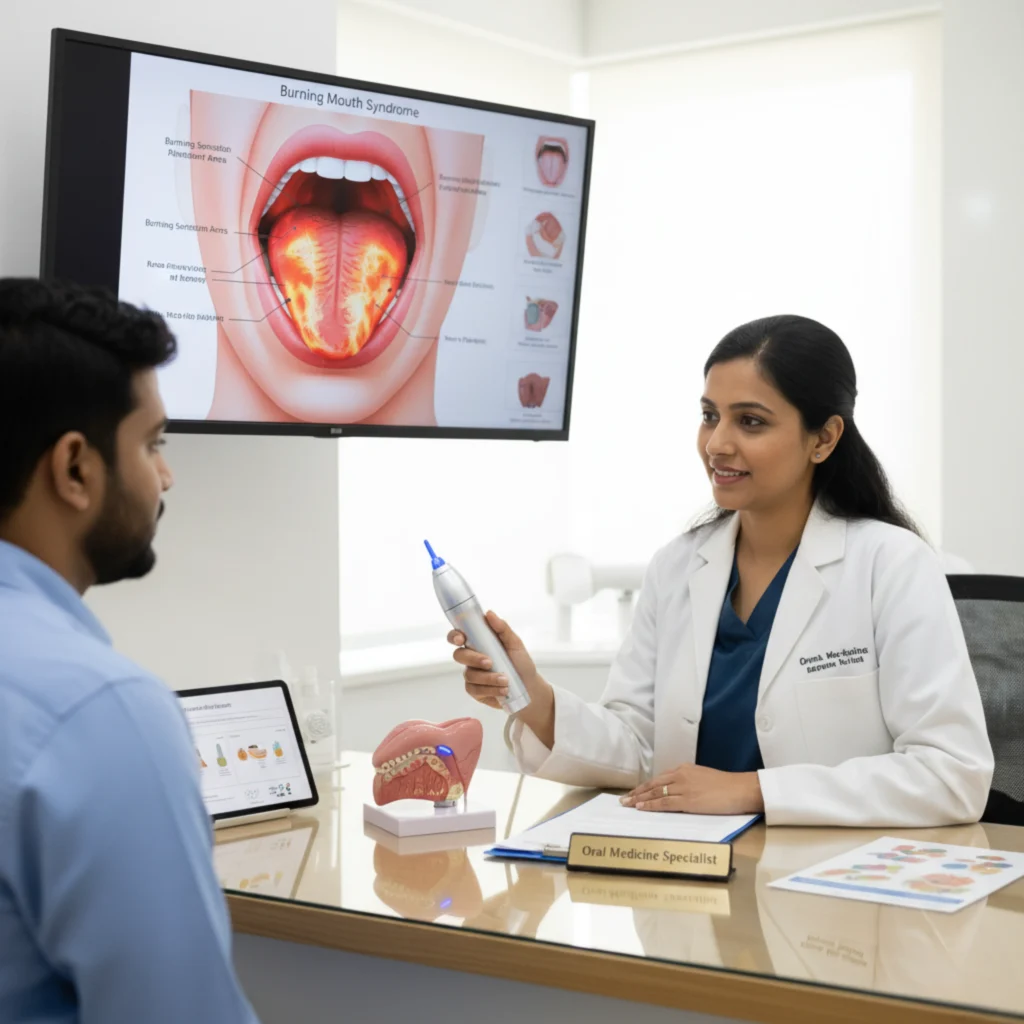Experiencing a persistent burning sensation in your mouth can be both frustrating and concerning, making it crucial to consult a burning mouth syndrome specialist. This condition, known as Burning Mouth Syndrome (BMS), can affect your tongue, lips, gums, and the roof of the mouth. Patients often report discomfort that interferes with eating, speaking, and even sleeping. By consulting a qualified specialist, you can receive accurate diagnosis, effective treatment, and long-term relief, ultimately improving your oral health and overall quality of life.
A burning mouth syndrome specialist is trained to identify and treat the unique symptoms associated with this condition. BMS often presents as a burning or scalding sensation without any visible signs in the mouth. The cause may be multifactorial, ranging from nerve damage to nutritional deficiencies, hormonal changes, or underlying medical conditions such as diabetes. Since the symptoms are subjective and can vary significantly from person to person, seeking expert care is essential.

A burning mouth syndrome specialist evaluates the following common signs:
These symptoms can significantly impact daily life, making early consultation with a specialist important for symptom management and prevention of complications.
The causes of BMS are complex and can vary between individuals. A burning mouth syndrome specialist considers multiple potential factors during diagnosis:
Identifying the root cause is critical, as effective treatment depends on addressing the underlying issue rather than just relieving symptoms.
A burning mouth syndrome specialist follows a systematic approach for accurate diagnosis. This includes:
Early and precise diagnosis by a specialist ensures that patients receive personalized care and faster relief from chronic discomfort.
Treatment of BMS requires a multidisciplinary approach, and a burning mouth syndrome specialist can recommend strategies tailored to each patient:
By combining these approaches, a burning mouth syndrome specialist can significantly improve patients’ quality of life.
If you experience ongoing burning sensations in your mouth for more than a few weeks, it is essential to consult a burning mouth syndrome specialist. Early intervention not only helps relieve discomfort but also prevents potential complications such as nutritional deficiencies, weight loss, or oral infections. Patients who ignore persistent symptoms often face worsening conditions and prolonged recovery times.
Selecting the right burning mouth syndrome specialist is crucial for effective treatment. Consider the following factors:
Prioritizing these factors ensures that you receive expert guidance and personalized treatment plans.
Persistent oral burning should never be ignored. Consulting a burning mouth syndrome specialist ensures accurate diagnosis, targeted treatment, and improved quality of life. With professional care, patients can regain oral comfort and maintain overall well-being. If you are searching for comprehensive care and expert treatment, consider visiting Unidental, the best dental hospital in Miyapur, where specialized care for burning mouth syndrome is provided with precision and compassion.
While some cases may improve without treatment, most patients benefit from professional care to address the underlying causes.
Stress can exacerbate symptoms, but it is rarely the sole cause. A specialist evaluates multiple factors to determine the root cause.
Simple measures like staying hydrated, avoiding irritants, and using oral moisturizers can provide temporary relief, but a specialist’s intervention is often necessary for long-term management.
Yes, certain foods such as acidic, spicy, or salty items may worsen symptoms. A specialist may recommend dietary adjustments for relief.
Hormonal changes during menopause can contribute to the condition, particularly in women experiencing unexplained oral discomfort.
Hyderabad : +91 6305 971445
Anantapur: +91 70758 90089
Goa: +91 83266 32500
Mon to Sat 10:00AM to 8:00PM
Sun 10:00AM to 12:00PM

Our goal is to provide friendly, caring dentistry with the highest standards in general, cosmetic, and specialist treatments. We strive to be the best dental hospital for comprehensive oral care.
We use advanced dental technology to deliver safe, precise, and painless treatments for every patient.